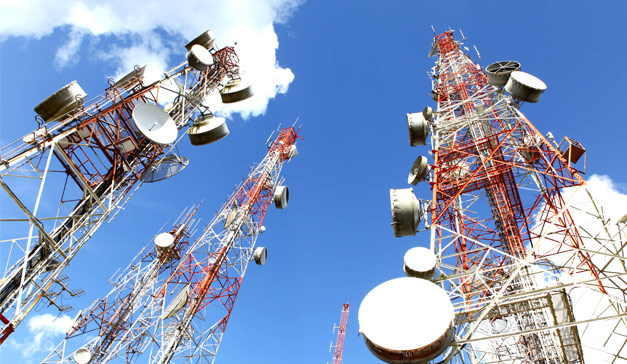Telecom
FG Extends NIN-SIM Integration Deadline by 8 Weeks

Federal government has extended the National Identification Number (NIN) and Subscriber Identity Module (SIM) linkage exercise by eight weeks. This is the second extension of the exercise.

The first extended deadline was 9 February 2021. Under the latest extension the exercise will now end on 6 April 2021.
Dr. Ikechukwu Adinde, director, public affairs, Nigerian Communication Commission (NCC) and Kayode Adegoke, head of corporate communications, National Identity Management Commission (NIMC) made this known in a joint statement posted on the NCC media WhatsApp platform early this morning (Tuesday).
Whatapp NewsTelegram News
According to them, the message was conveyed by Dr Isa Ali Ibrahim (Pantami), Minister of Communication and Digital Economy during a meeting of the Ministerial Taskforce on NIN-SIM registration held on Monday.
The full statement reads:
“The ongoing National Identification Number (NIN) and Subscriber Identity Module (SIM) integration exercise has been extended by 8 weeks, with a new deadline of April 6, 2021. This message was conveyed by the Honourable Minister of Communications and Digital Economy, Dr. Isa Ali Ibrahim (Pantami), FNCS, FBCS, FIIM during the meeting of the Ministerial Taskforce on NIN-SIM registration which held on the 1st of February, 2021. Dr Pantami stated that the extension is to give Nigerians and legal residents more time to integrate their NIN with the SIM.
“The meeting was chaired by the Honourable Minister and attended by key stakeholders, including the EVC/CEO of the Nigerian Communications Commission (NCC), DG/CEO of the National Identity Management Commission (NIMC), DG/CEO of the National Information Technology Development Agency (NITDA) and the Chairman of the Association of Licensed Telecommunications Operators of Nigeria (ALTON). Others include the MD/CEOs of MTN, Airtel, 9Mobile, Ntel, Spectranet and SMILE, as well as the COO of Globacom.
“It was reported that a total of 56.18 million NINs have been collected by the mobile network operators. Each NIN is usually tied to an average of 3 to 4 SIMs and this infers that the current figure accounts for a significant portion of the existing SIMs. This number of NINs collected represents a significant increase when compared with the 47.8 million reported by the Technical Committee on January 18, 2021.
“Furthermore, over 1060 registration centres for NIN have been activated and made operational by NIMC across the country, while Mobile Network Operators (MNOs) have opened hundreds of centres and are rapidly deploying resources to open thousands of other NIN enrolment centres across states of the country. This is in line with the policy of the administration of President Muhammadu Buhari to enhance security and make the process of obtaining NINs easier for Nigerians.
The CEOs of the Telcos and the Chairman of the Association of Licensed Telecommunications Organisation of Nigeria commended the Honourable Minister for his stellar leadership and commitment to the rapid development of the sector.
“Dr. Pantami reiterated the need for Nigerians and legal residents who are yet to register for the NIN to be diligent and take advantage of the extension to enroll for their NIN and link with their SIMs. It would be recalled that the 4th of February, 2020 was the initial date of the commencement of the National NIN-SIM Registration Policy.
“The Federal Government of Nigeria applauds all Nigerians and persons of other nationalities for their understanding, cooperation and for enthusiastically participating in the exercise. The Honourable Minister also commended the efforts of NIMC, NCC, MNOs and all other relevant government and private sector organisations for their unflinching support towards the success of the exercise.
“President Muhammadu Buhari has expressed his satisfaction with the progress made regarding the NIN-SIM linkage and commended the Honourable Minister and all stakeholders for their roles. He encouraged citizens to take advantage of the extension to fully participate in the process.
“The Honourable minister implores applicants to follow the safety guidelines at all the NIN enrolment centers and ensure compliance with the booking system in place. This protocol is in line with the Executive Order on COVID-19 2020 signed by President Muhammadu Buhari on the 27th of January 2021, in keeping with the provisions of the Quarantine Act 2004.
“It is noteworthy that Sections 27 and 29 of the National Identity Management Commission Act 2007 provides for the mandatory use of National Identity Number for transactions, including application and issuance of a passport, opening of personal bank accounts, purchase of insurance policies, voter registration, obtaining credit, among others.”
Telecom
Telcos Threaten to Disconnect Banks over Misinformation on New USSD Charges

Telecommunication companies have threatened to withdraw their Unstructured Supplementary Services Data (USSD), services from banks over what they called misinformation.

MTN Nigeria, Airtel, Globacom and 9Mobile- the telcos disclosed that the banks’ notice to their customers on the new billing system and airtime deductions for USSD services was misleading.
Also, Association of Licensed Telecom Operators of Nigeria (ALTON) also denied that the directive was from the Nigerian Communications Commission (NCC).
USSD is done via shortcodes on mobile phones and allows bank customers to make transactions in places with limited or no internet service.
Recall that banks earlier this week claimed that NCC has directed them to begin charging them from their airtime rather than from customers’ accounts.
The notice from the banks read in part: “In line with the directive of the Nigerian Communications Commission (NCC), please be informed that effective June 3, 2025, charges for USSD banking services will no longer be deducted from your bank account.
“Going forward, these charges will be deducted directly from your mobile airtime balance in accordance with the NCC’s End-User Billing (EUB) model.
“Under this new billing structure, each USSD session will attract a charge of ?6.98 per 120 seconds, which will be billed by your mobile network operator.
“You will receive a consent prompt at the start of each session, and airtime will only be deducted upon your confirmation and availability of the bank to fulfil this service.
“If you do not wish to continue using USSD banking under this new model, you may choose to discontinue use of the USSD channel.”
Reacting, ALTON, umbrella body of telecom operators in Nigeria, said the banks’ notice is a gross misinformation deliberately hatched to suit their selfish interests.
Hence they threatened to withdraw network support to the banks’ USSD services.
Engr Gbenga Adebayo, chairman of ALTON told Vanguard: ” I don’t understand why the banks are twisting agreements and distorting information just to favour their selfish interests. In the first place, the information wasn’t a directive from the NCC but a joint regulatory agreement between the NCC and the Central Bank of Nigeria, CBN witnessed by the telcos and the banks. The agreement was that if the banks finally cleared all USSD debts owed to the telcos by June 2, 2025, they are free to migrate to the end-user billing method, so long as the model of migration is transparent and agreed upon by the telcos.
“The reason for that clause was because the telcos insisted that the process of migration is such that will not allow a customer to be billed twice; in other words, that a subscriber would not have his airtime deducted and also have his or her money deducted for same services from his or her bank account.
” As we speak, some of the banks have cleared their debts, but the majority are yet to do so. So, even if all the modalities of migrating to end-user billing have been perfectly carried out, the implementation cannot even begin because the banks are yet to clear the USSD debt owed to the telcos.
“Our position now is that if that is the way the banks want to treat the agreement, we may withdraw support for their USSD services. It is not a must-have. They can do without it. But, they should clear the debts as agreed,” he added.
Telecom
MTN Nigeria Plans N900Bn in Service Upgrade

MTN Nigeria has announced plans to embark on a massive capital expenditure (CAPEX) drive in 2025, committing nearly N900 billion to significantly enhance network service quality across Nigeria.

Dr. Karl Toriola, CEO, MTN Nigeria,
The substantial investment, more than double the combined CAPEX of approximately N440 billion spent in 2023 and 2024, underscored MTN’s aggressive strategy to address persistent service quality issues and meet growing customer and regulatory expectations.
Dr. Karl Toriola, CEO, MTN Nigeria, detailed this unprecedented financial commitment during a recent interview on Arise TV, emphasizing that improving service quality is the company’s paramount message for the year.
He highlighted a clear understanding and expectation from both the Nigerian Communications Commission (NCC) and security agencies for improved network quality.
A primary focus of this increased CAPEX will be on putting additional capacity in a city like Lagos, particularly in Abuja, where you have a lot of buildings coming up, you need additional sites because there are coverage issues.
Beyond these critical urban centers, the investment aims to bolster network resilience and ensure power stability for its infrastructure nationwide.
This includes proactively addressing site outages by ensuring timely payment for operational necessities such as diesel for generators, a persistent challenge in the Nigerian operating environment.
Toriola outlined a comprehensive upgrade process, which involves placing orders formally, opening letters of credit, and then the equipment gets shipped in and installed.
He added that MTN will be acquiring new sites and laying fiber to the base station to create better stability” where necessary.
While the immediate CAPEX is geared towards improving existing service quality and capacity, this investment aligns with MTN’s broader goals of enhancing financial inclusion in underserved rural areas, suggesting a long-term vision for network expansion and service improvement that extends beyond metropolitan areas.
Subscribers can anticipate tangible improvements in service quality, with a significant improvement in quality of service expected by the end of the second quarter or early in the third quarter of 2025, according to Toriola.
“This year is all going to be about capital expenditure on an aggressive basis to fix quality of service issues (and) meet both the regulators’ and the public’s expectations,” he affirmed, reiterating MTN’s steadfast focus on customer experience through substantial capital investment.
Telecom
Telecom Regulators in Africa Chart New Course for a Data-driven Future

Telecom regulators and industry leaders from across the Middle East and Africa gathered in Cairo last week to chart a data-driven future for the region.

In a region where digital transformation is accelerating at unprecedented speed, connectivity intelligence firm, Ookla and Egypt’s National Telecom Regulatory Authority (NTRA) joined forces to organise the Telecommunications Regulatory Summit
Themed ‘Harnessing Data and Technology for Superior QoS’, the summit focused on how data, particularly crowdsourced insights, can transform regulatory strategies across the region.
The summit attracted stakeholders from over 30 countries, including delegates from the International Telecommunication Union (ITU) and World Broadband Association (WBBA), who engaged in high-level discussions on optimising network performance and accelerating digital inclusion.
Karim Yaici, lead industry analyst for the Middle East and Africa at Ookla, said the event set the tone for the growing value of data-driven decision-making.
“Access to and the use of crowdsourced data contribute to making more informed decisions, fostering transparency and ensuring that citizens in the MEA region benefit from high-quality, accessible and affordable connectivity,” he said.
The experts underlined that crowdsourced data is becoming a critical complement to traditional regulatory methods.
They agreed that it helps identify service gaps, prioritise infrastructure investments, and drive innovation.
With broadband speeds now closely tied to GDP growth and productivity, accurate performance data is seen as key to socio-economic advancement.
Dr. Hossam Abdel-Mawla, vice-president of technical affairs and quality of service at NTRA, stressed that the summit was pivotal in fostering regional collaboration.
“By actively sharing best practices and exploring innovative data-driven strategies, we are shaping a future where telecom regulations ensure digital inclusion and economic growth across the region,” he said.
In a key session, Ahmed Nabawy, director of client services at Ookla, presented findings on 5G performance in Egypt and Tunisia.
He demonstrated how Ookla’s unified data platform, powered by AI, enables operators to analyse 5G-capable device density and prioritise high-impact rollout areas.
The summit also explored the shift from conventional network quality metrics to more user-centric Quality of Experience models. These advanced analytics tools promise to enhance transparency, improve accountability, and ultimately deliver better connectivity experiences for all.

 E-Business2 days ago
E-Business2 days agoNIMC Plans to Register 95 Percent Nigerians by December

 News2 days ago
News2 days agoJAMB Waxes Worriedly over Rising Digital Exam Fraud

 Telecom2 days ago
Telecom2 days ago9mobile Nigeria Inks Agreement to Roam with MTN

 Telecom2 days ago
Telecom2 days agoIHS Nigeria Moves to Enhance G4S Secure Solutions Site Patrols and Increase Operational Efficiency with Patrol Vehicles

 Telecom2 days ago
Telecom2 days agoBanks, Telcos to Start Deducting USSD Charges from Airtime Today

 E-Business1 day ago
E-Business1 day agoAXIAN Telecom Invests in Jumia Post-MTN Era

 Telecom2 days ago
Telecom2 days agoKonga Launches 3rd Edition of Mid-Year Shopping Festival with Unbeatable Discounts

 E-Financial2 days ago
E-Financial2 days agoFitch Upgrades Fidelity Bank’s National Rating to ‘A+(nga)’, Affirms Long-Term IDR at ‘B’



















